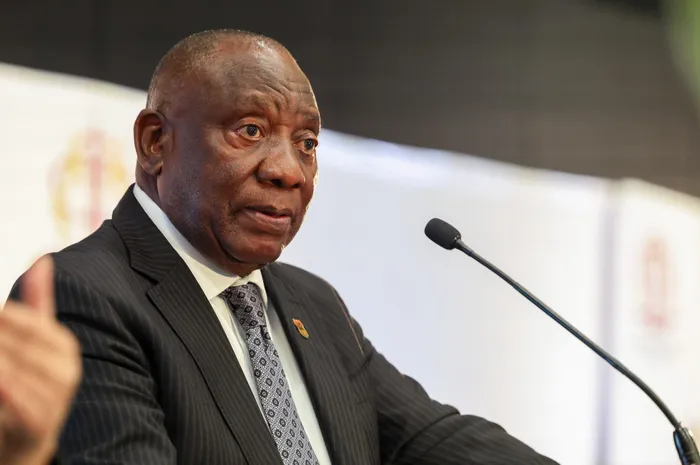Ramaphosa urges G20 leaders to address global inequality

President Cyril Ramaphosa calls on the G20 to urgently tackle global inequality, highlighting its devastating impact on poverty, democracy, and stability, and urges adoption of policies for sustainable, inclusive economic growth.
Image: Jairus Mmutle/GCIS
President Cyril Ramaphosa has urged the G20 to urgently tackle global inequality, describing it as a central pillar of South Africa’s G20 Presidency alongside solidarity and sustainability.
In his weekly letter to the nation, Ramaphosa said, “We chose to focus on equality because it is essential to a more stable, prosperous and sustainable world.”
He emphasised that if the G20 is to address pressing global economic and financial issues, it must “significantly and urgently reduce inequality.”
Highlighting the stark disparities in wealth distribution, the President noted that the world’s richest 10 percent account for more than half of total global income and 74 percent of global wealth, with one in four people facing moderate or severe food insecurity.
He warned that such inequalities “are unjust and consign billions of people to poverty” and argued that inequality undermines democracy, fuels conflict, and stifles inclusive economic growth.
As part of South Africa’s G20 leadership, Ramaphosa established an Extraordinary Committee of Independent Experts on Global Inequality, chaired by Nobel Laureate and economist Joseph Stiglitz.
The committee’s report, submitted last week, examines the causes and consequences of inequality and makes a range of recommendations.
According to Ramaphosa, the report represents a landmark moment: “Given the importance of equality to sustaining global growth, to social and political stability and to the legitimacy of international economic governance, it is good that at South Africa’s instance this will be the first time the G20 will focus on this matter and consider an in-depth report of this nature.”
The report stresses that inequality is a policy choice and that the G20 has the ability to address it through targeted action.
Among its proposals is the creation of a permanent International Panel on Inequality, modelled on the Intergovernmental Panel on Climate Change, which would measure and monitor global inequality trends and advise governments and international institutions on effective policy responses.
Ramaphosa also highlighted South Africa’s existing policies aimed at reducing inequality, including progressive taxation, minimum wage legislation, public expenditure on free or subsidised healthcare, zero-rating essential foodstuffs, and strong social protection systems.
The report points to market concentration, monopolies, and anticompetitive business practices as major drivers of inequality, and Ramaphosa stressed the importance of promoting debt sustainability, particularly for developing economies.
“Interest on sovereign debt repayments, particularly in Africa, is stifling public spending and economic growth. It is widening the gap between countries and within countries,” he said.
The committee further recommends that governments consider establishing National Inequality Reduction Plans with clear targets for reducing both income and wealth inequality.
While acknowledging that some recommendations are not new, Ramaphosa emphasised that the G20 will be considering the issue of global inequality for the first time.
He called for the report to be widely read and its recommendations to be taken seriously in the lead-up to the Leaders’ Summit, describing it as a “credible blueprint for the actions we need to take to overcome” inequality.
hope.ntanzi@iol.co.za
IOL Politics
Get your news on the go. Download the latest IOL App for Android and IOS now.
Related Topics: